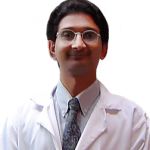Understanding Upper Endoscopy
What is upper endoscopy? Upper endoscopy lets Dr. B C Shah examine the lining of the upper part of your gastrointestinal tract, which includes the esophagus, stomach and duodenum (first portion of the small intestine). Dr. B C Shah will use a thin, flexible tube called an endoscope, which has its own lens and light source, and will view the images on a video monitor. You might hear Dr. B C Shah or other medical staff refer to upper...
Tracheostomy
Introduction A tracheostomy is a surgical procedure where Dr. B C Shah creates an opening in the neck at the front of the windpipe (trachea). A tube is inserted into the opening and connected to an oxygen supply to assist with breathing. Fluid that has built up in the throat and windpipe can also be removed through the opening. A tracheostomy can be performed as: An emergency procedure – for example, if someone is unable to breathe...
Thyroid Gland Removal
What is a thyroidectomy? A thyroidectomy is surgery to remove all or part of the thyroid gland.The thyroid gland is a small gland in the lower front of your neck. It takes iodine from the food you eat to make hormones. The hormones control the process of turning the food you eat into energy. When is it used? You may need to have part or all of your thyroid gland removed if: You have a lump in your thyroid gland that could be cancer....
Thyroglossal Duct & Cyst Removal
What is a thyroglossal duct cyst? A thyroglossal duct cyst is a neck mass or lump that develops from cells and tissues remaining after the formation of the thyroid gland during embryonic development. It is most commonly diagnosed in preschool-aged children or during mid-adolescence, and often appears after an upper respiratory infection when it enlarges and becomes painful. What causes a thyroglossal duct cyst? A thyroglossal duct...
Testicle Removal (Orchiectomy)
Orchiectomy is the removal of the testicles. The penis and the scrotum, the pouch of skin that holds the testicles, are left intact. An orchiectomy is done to stop most of the body’s production of testosterone, which prostate cancer usually needs in order to continue growing. What To Expect After Surgery Orchiectomy can be done as an outpatient procedure or with a short hospital stay. Regular activities are usually...

 Dr. Bimal Shah is the senior most General & Laparoscopic surgeon in Mira – Bhayandar with largest series of operations. He also consults at Borivali – Dahisar. He believes in ethical practice & is available at only trust hospitals. He passed out from KEM hospital, Mumbai in 1993 and was a lecturer training newer surgeons & medical students till 1998.
Dr. Bimal Shah is the senior most General & Laparoscopic surgeon in Mira – Bhayandar with largest series of operations. He also consults at Borivali – Dahisar. He believes in ethical practice & is available at only trust hospitals. He passed out from KEM hospital, Mumbai in 1993 and was a lecturer training newer surgeons & medical students till 1998. 







